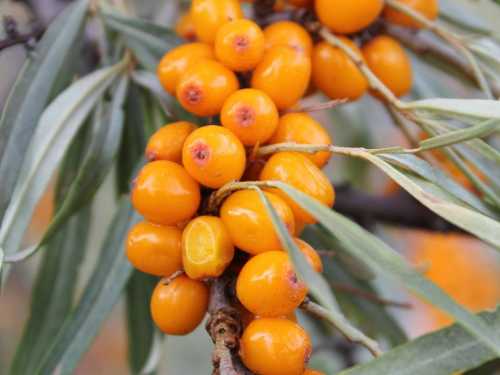
Scientists from the University of Lodz have discovered that sea buckthorn seeds can reduce platelet activity and prevent blood clots. Their results are published in the journal Nutrients.
Our blood contains tiny “lifeguard” cells called platelets. When we get injured, they stick together to stop the bleeding, forming a clot. But sometimes they become too active and form blood clots inside the blood vessels, which is dangerous. So, scientists suggest that substances in sea buckthorn seeds may “calm down” these platelets, making them less “sticky.”
In laboratory experiments, researchers compared extracts from raw and roasted sea buckthorn seeds. They found that the substances from the roasted seeds were particularly effective in preventing platelets from sticking to collagen and fibrinogen, proteins involved in clot formation.
Think of collagen and fibrinogen as a kind of “glue” or “framework” that platelets cling to to form a clot. Sea buckthorn extract seemed to make this framework slippery, preventing platelets from sticking to it.
The flavonoid isorhamnetin showed the greatest activity, prolonging the time for blood clot formation and reducing the level of platelet activation markers, that is, in essence, it was the main active substance that inhibited the entire blood clotting process.
Although the study was conducted in vitro, that is, in laboratory conditions, “in a test tube” and not on living people, the results indicate that sea buckthorn may be a promising source of natural antiplatelet agents that could help prevent cardiovascular disease in the future. The scientists emphasize that clinical trials are needed to confirm the effectiveness and safety of these compounds in humans.





